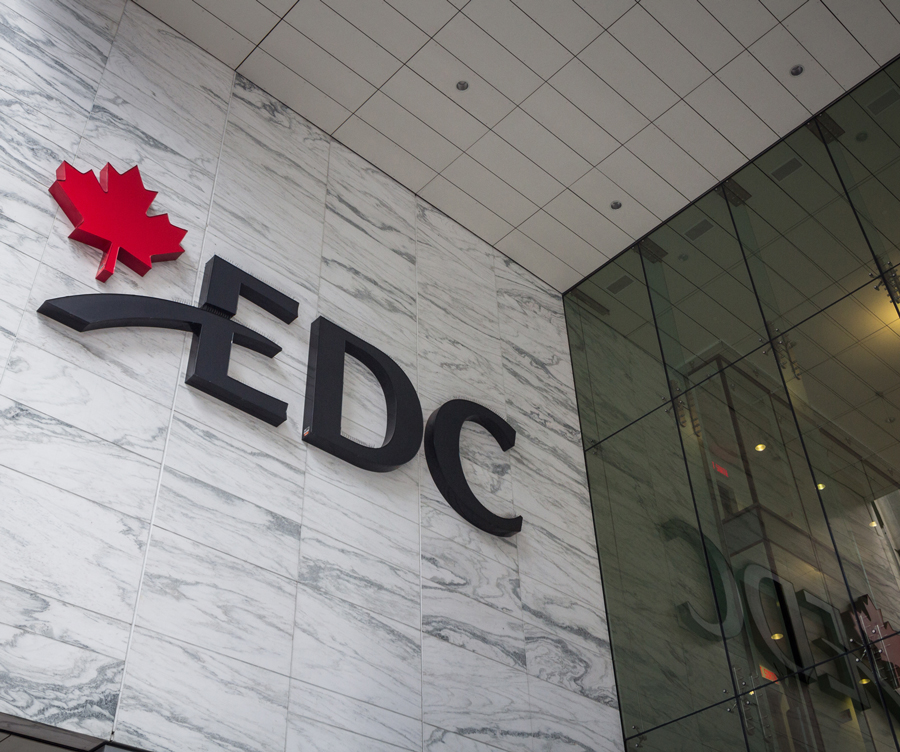Export Development Canada (EDC) is ramping up expansion in Asia as Canada seeks to arrest a long-term decline in its share of global exports.
EDC, which is both an export credit agency and trade promotion vehicle, last month appointed George Monize as head of the Indo-Pacific, based at its regional headquarters in Singapore.
The agency plans to open offices in Ho Chi Minh City, Manila and Tokyo this year, following expansion to Jakarta and Seoul in 2023. The new additions will bring the total number of Asian offices – which are generally teams of around three people housed in a Canadian diplomatic mission – up to 11.
Expanding “trade, investment and supply chain resilience” is one of the main priorities of the Canadian government’s Indo-Pacific strategy, adopted in 2022. EDC’s chief executive Mairead Lavery lamented last year that the country’s share of global exports had fallen to 2.3% from 4% in 2000, Nikkei reported, putting it near the bottom of OECD countries.
Canada ranks low on the shopping list of China’s importers, for example, with similarly resource-rich countries such as Australia, Brazil, Chile and Russia all selling far more goods to China than the US$25.4bn-worth exported by Canada in 2022, according to data from the Observatory of Economic Complexity.
Monize tells GTR that EDC is just one year into a five- to seven-year strategy of trying to expand Canadian exports to the Indo-Pacific by first building relationships across the region. He declined to say if EDC is aiming to reach a specific value of business or exports, but said targets may be applied later.
“Our objective is really quite aggressive, as we look to build it out,” Monize says. “But we’re still in the early stages,” which he describes as establishing an operational and development footprint in Asia.
“In order to really be successful, to really understand what’s happening market, you have to have that local counterpart.
“I’ve seen examples of companies coming in and they’re trying to do a deal. It’s like, ‘Great – who’s your local person or local company you’re dealing with? Don’t have one? No, thanks’.”
“The Indo-Pacific region is very relationship-focused,” the EDC said in its 2023 annual report. “Strategic relationships take time to develop, and over the long term they will be critical to our success.”
EDC currently has around 70-80 staff working on the Indo-Pacific, which includes a small team at its headquarters in Ottawa. The local “representations”, as EDC calls them, typically include one Canadian representative and a smattering of local staff with contacts, knowledge and language skills.
Most export credit agencies have in-country representatives in major markets, often housed in diplomatic missions. But EDC believes it is unique in having its Singapore regional office as a standalone branch, with its own underwriting team.
Monize also hopes that EDC’s concerted push into Asia will pique the interest of commercial banks in Canada. BMO and TD Bank, he says, are examples of Canadian lenders with a significant presence in some Asian markets, but overall Canadian banks tend to have a domestic focus.
“We’re hoping that we can change that a little bit. With our support and some of the transactions and opportunities that arise, there’ll maybe be more of an appetite [from Canadian lenders] to do more in the Indo-Pacific.”
Last year, EDC “facilitated” more than C$17bn (US$12.4bn) in support of Canadian exporters to the Indo-Pacific, a spokesperson says.
Canada is a major exporter of minerals and metals, but is also an agricultural powerhouse. Monize believes that given the country’s “great brand” for finished and unfinished food products, it can go toe-to-toe with exporters such as Australia, New Zealand and some European countries to meet the growing demand for high-quality foodstuffs among Asia’s swelling middle classes.
EDC is also focusing its Asian support on advanced manufacturing, infrastructure and clean technology, according to its annual report. Last year the organisation joined a raft of ECAs to insure a US$3.6bn commercial financing package to build an offshore wind project near Taiwan.
“That is really where we want to focus, to do more of these types of transactions,” Monize says, noting that EDC does not always require a minimum of Canadian content in order to back a deal, and will sometimes do so if a Canadian company is leading a project, or the supply chain can be connected to it.








